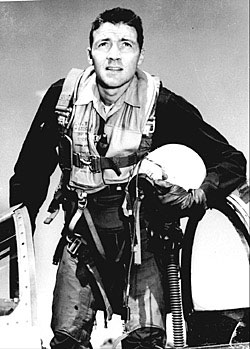The End of Defense and the National Interest
Friday, November 20th, 2009Dr. Chet Richards announced that DNI is set to adjourn sine die.
Probably on Monday, November 23, depending on how my travels work out. Please go ahead and download any thing you’d like to keep — I’d particularly recommend Boyd’s briefings and the 4GW manuals. I have great faith in the growing number of bloggers and commentators who cover many of the same subjects we did – check out a few of them in the “Blogs” and “Other Sites” sections on the right.
DNI started in March 1999 with a grant from Danielle Brian and the folks at the Project on Government Oversight. Its original purpose was to house the growing collection of Chuck Spinney’s commentaries on the foibles of our defense program (when you read these, keep in mind this was during the Clinton era. We were not associated with any political party). If you’re interested in strengthening our position in 4GW, I’d suggest a generous donation to POGO. You could also run for office.
I’d like to thank Danielle, Chuck, Marcus Corbin (our original project officer at POGO and the person who commissioned A Swift, Elusive Sword), Ginger Richards (who designed and operated all the various versions of the site), Bill Lind and all of our other contributors, and all who have taken the time to compose comments.
Chet Richards,
Editor
This is a shame, but everything has its time.
DNI served as an important counterpoint to the “conventional wisdom” in military affairs long before the growth of the now influential defense/.mil/intel/COIN/national security blogosphere. In addition to hosting the entertaining jeremiads of William Lind, Dr. Richards was the steward of the legacy of the great American strategist Colonel John Boyd and the benefactor of the 4GW School of strategic analysis. DNI was not only a resource for scholars and strategists interested in Boyd’s theories, it was a forum for vigorous debate at a time when unconventional views on military reform were unpopular as well as obscure.
Personally, I have learned much from both DNI and from Dr. Richards whom I had the pleasure of meeting in 2007, at the Boyd Conference at Quantico ( where I met other blogfriends and readers including Shane Deichman, Dan TDAXP, Shlok Vaidya, John Robb, Adam Elkus, Dave Dilegge, Frank Hoffman, Don Vandergriff, Frans Osinga, Ski, Isaac and Morgan). This event subsequently led to much good reading, writing, discussion and still more new friends now too numerous to mention here. The keynote speaker that day was Col. Frans Osinga, whose magnum opus Science, Strategy and War: The Strategic Theory of John Boyd is still the most comprehensive and detailed text on John Boyd’s strategic thought that we are ever likely to see.
Consequently, as a regular reader, I would like to thank Chet both for his hard work over the years as editor of DNI and for his occasional advice and contributions to various projects and discussions that have occurred in this section of the blogosphere. Dr. Richards appears to be very busy with his business consulting these days and I wish him the very best in his future endeavors.
DNI will soon be gone, but it will not be forgotten.
ADDENDUM:
Joseph Fouche is a step ahead on the Boyd downloads
Here are the 4GW manuals (temp).
UPDATE:

 of diffused, networked, “open source” armed conflicts that some have called “fifth generation warfare.”
of diffused, networked, “open source” armed conflicts that some have called “fifth generation warfare.”

